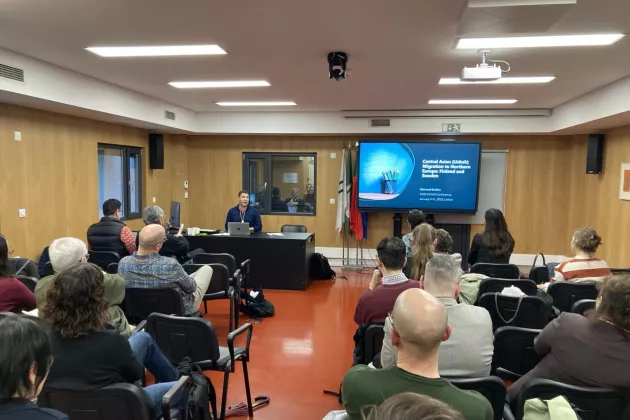Members of the MARS project recently participated in the Aleksanteri Conference, held at the University of Helsinki from October 23–25, 2024. The conference, titled "Resisting Authoritarianism in Eurasia: Civil Society and New Solidarities", provided a platform for discussion on pressing issues related to the region and the migration issues in the region.
MARS project members were active participants, presenting in the panel titled "Transnational Dynamics in Eastern Europe: Immigration, Identity and Diaspora". This panel was convened by members of the MARS project.
Key themes explored by the MARS project members included:
• Transnational dynamics in Eastern Europe, specifically focusing on immigration, identity and diaspora.
• The complex dynamics of diaspora influence, particularly in relation to transnational activism and repression.
• The uncertainty in theory and lived experience.
• Post-Soviet immigration and changing migration policies in Finland.
• Negotiating identities, symbolisms, and securities in the context of Russia's war in Ukraine, with a focus on Russian speakers and the state in Estonia.
The panel was chaired and discussed by Rustamjon Urinboyev ( Lund University, Sweden).
Panel presenters included:
• Dzeneta Karabegovich (University of Salzburg, Austria), who presented on navigating transnational activism and repression, focusing on the complex dynamics of diaspora influence.
• Caress Schenk (Nazarbayev University, Kazakhstan), who explored the theme of uncertainty in theory and lived experience.
• Sherzod Eraliev (Aleksanteri Institute, University of Helsinki, Finland/Lund University, Sweden), whose presentation focused on post-Soviet immigration and changing migration policies in Finland.
• Joni Virkkunen (University of Eastern Finland, Finland), who discussed the negotiation of identities, symbolisms, and securities in Estonia for Russian speakers and the state during Russia’s war in Ukraine.
The MARS project participation in the Aleksanteri Conference highlights their commitment to exploring critical issues in migration and fostering dialogue on these important topics. The contributions of project members further the understanding of the complex issues surrounding the migration in authoritarianism, civil society, and transnational dynamics in the region.





